
openrecall
OpenRecall is a fully open-source, privacy-first alternative to proprietary solutions like Microsoft's Windows Recall. With OpenRecall, you can easily access your digital history, enhancing your memory and productivity without compromising your privacy.
Stars: 1500
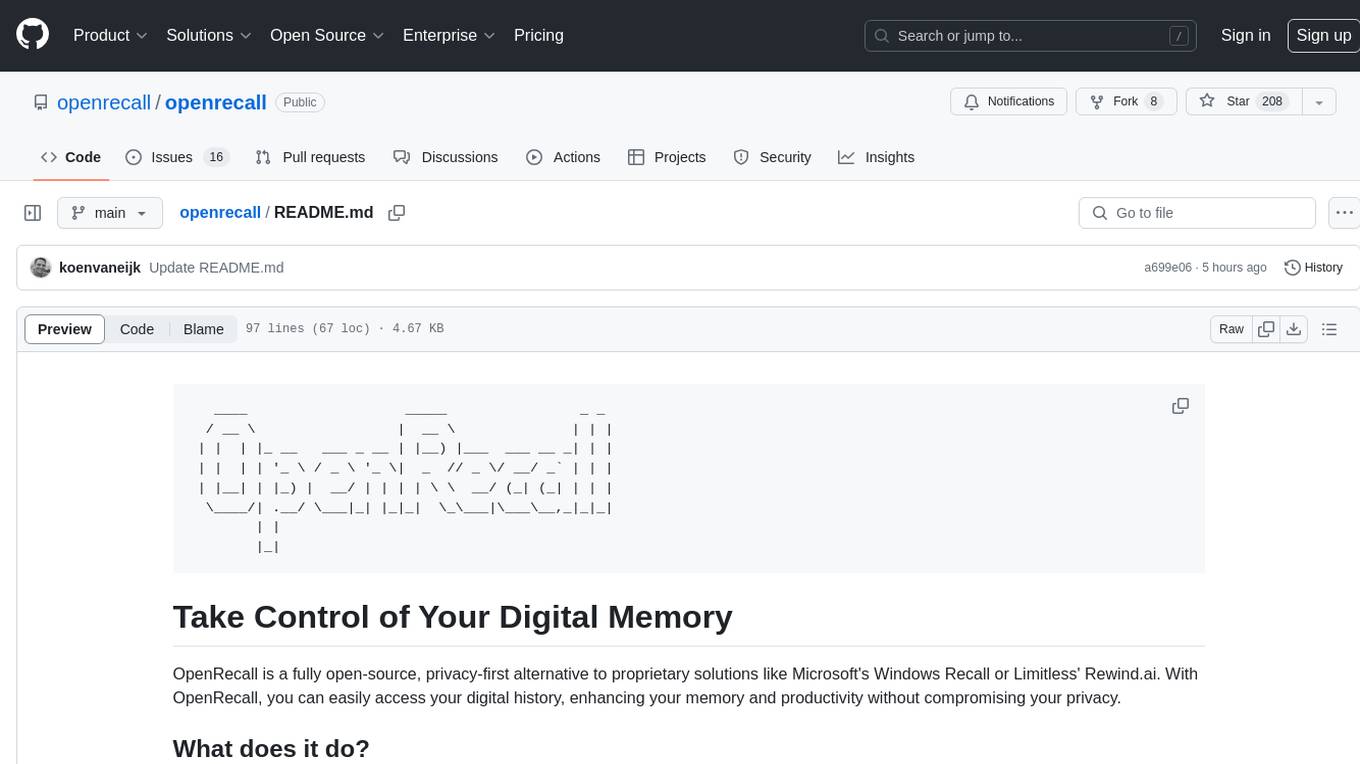
OpenRecall is a fully open-source, privacy-first tool that captures your digital history through snapshots, making it searchable for quick access to specific information. It offers transparency, cross-platform support, privacy focus, and hardware compatibility. Features include time travel, local-first AI, semantic search, and full control over storage. The roadmap includes visual search capabilities and audio transcription. Users can easily install and run OpenRecall to enhance memory and productivity without compromising privacy.
README:
____ ____ ____
/ __ \____ ___ ____ / __ \___ _________ _/ / /
/ / / / __ \/ _ \/ __ \/ /_/ / _ \/ ___/ __ `/ / /
/ /_/ / /_/ / __/ / / / _, _/ __/ /__/ /_/ / / /
\____/ .___/\___/_/ /_/_/ |_|\___/\___/\__,_/_/_/
/_/
Enjoy this project? Show your support by starring it! ⭐️ Thank you!
Join our Discord and/or Telegram community to stay informed of updates!
OpenRecall is a fully open-source, privacy-first alternative to proprietary solutions like Microsoft's Windows Recall or Limitless' Rewind.ai. With OpenRecall, you can easily access your digital history, enhancing your memory and productivity without compromising your privacy.
OpenRecall captures your digital history through regularly taken snapshots, which are essentially screenshots. The text and images within these screenshots are analyzed and made searchable, allowing you to quickly find specific information by typing relevant keywords into OpenRecall. You can also manually scroll back through your history to revisit past activities.
https://github.com/openrecall/openrecall/assets/16676419/cfc579cb-165b-43e4-9325-9160da6487d2
OpenRecall offers several key advantages over closed-source alternatives:
- Transparency: OpenRecall is 100% open-source, allowing you to audit the source code for potential backdoors or privacy-invading features.
- Cross-platform Support: OpenRecall works on Windows, macOS, and Linux, giving you the freedom to use it on your preferred operating system.
- Privacy-focused: Your data is stored locally on your device, no internet connection or cloud is required. In addition, you have the option to encrypt the data on a removable disk for added security, read how in our guide here.
- Hardware Compatibility: OpenRecall is designed to work with a wide range of hardware, unlike proprietary solutions that may require specific certified devices.
- Time Travel: Revisit and explore your past digital activities seamlessly across Windows, macOS, or Linux.
- Local-First AI: OpenRecall harnesses the power of local AI processing to keep your data private and secure.
- Semantic Search: Advanced local OCR interprets your history, providing robust semantic search capabilities.
- Full Control Over Storage: Your data is stored locally, giving you complete control over its management and security.
| Feature | OpenRecall | Windows Recall | Rewind.ai |
|---|---|---|---|
| Transparency | Open-source | Closed-source | Closed-source |
| Supported Hardware | All | Copilot+ certified Windows hardware | M1/M2 Apple Silicon |
| OS Support | Windows, macOS, Linux | Windows | macOS |
| Privacy | On-device, self-hosted | Microsoft's privacy policy applies | Connected to ChatGPT |
| Cost | Free | Part of Windows 11 (requires specialized hardware) | Monthly subscription |
- Roadmap and you can vote for your favorite features
- FAQ
- Python 3.11
- MacOSX/Windows/Linux
- Git
To install:
python3 -m pip install --upgrade --no-cache-dir git+https://github.com/openrecall/openrecall.git
To run:
python3 -m openrecall.app
Open your browser to: http://localhost:8082 to access OpenRecall.
--storage-path (default: user data path for your OS): allows you to specify the path where the screenshots and database should be stored. We recommend creating an encrypted volume to store your data.
--primary-monitor-only (default: False): only record the primary monitor (rather than individual screenshots for other monitors)
As an open-source project, we welcome contributions from the community. If you'd like to help improve OpenRecall, please submit a pull request or open an issue on our GitHub repository.
OpenRecall is released under the AGPLv3, ensuring that it remains open and accessible to everyone.
For Tasks:
Click tags to check more tools for each tasksFor Jobs:
Alternative AI tools for openrecall
Similar Open Source Tools

openrecall
OpenRecall is a fully open-source, privacy-first tool that captures your digital history through snapshots, making it searchable for quick access to specific information. It offers transparency, cross-platform support, privacy focus, and hardware compatibility. Features include time travel, local-first AI, semantic search, and full control over storage. The roadmap includes visual search capabilities and audio transcription. Users can easily install and run OpenRecall to enhance memory and productivity without compromising privacy.
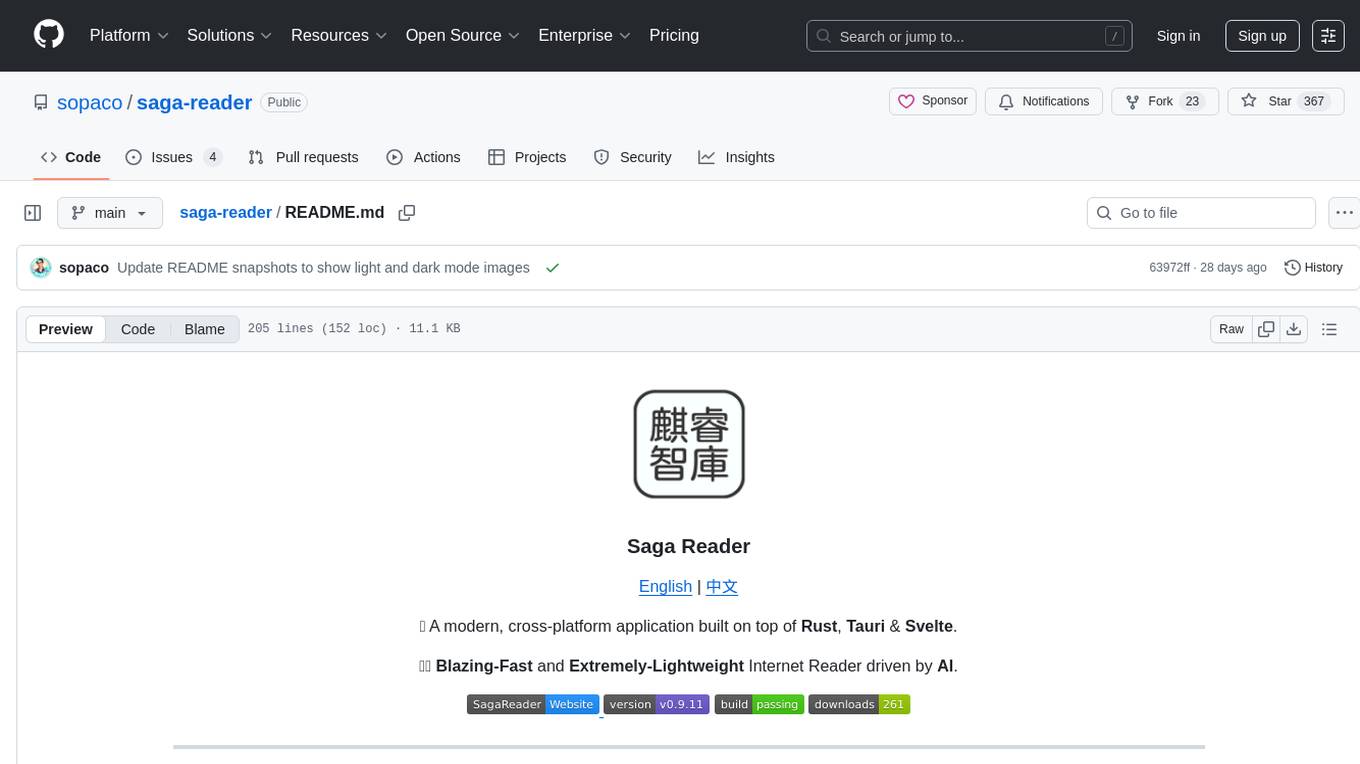
saga-reader
Saga Reader is an AI-driven think tank-style reader that automatically retrieves information from the internet based on user-specified topics and preferences. It uses cloud or local large models to summarize and provide guidance, and it includes an AI-driven interactive companion reading function, allowing you to discuss and exchange ideas with AI about the content you've read. Saga Reader is completely free and open-source, meaning all data is securely stored on your own computer and is not controlled by third-party service providers. Additionally, you can manage your subscription keywords based on your interests and preferences without being disturbed by advertisements and commercialized content.
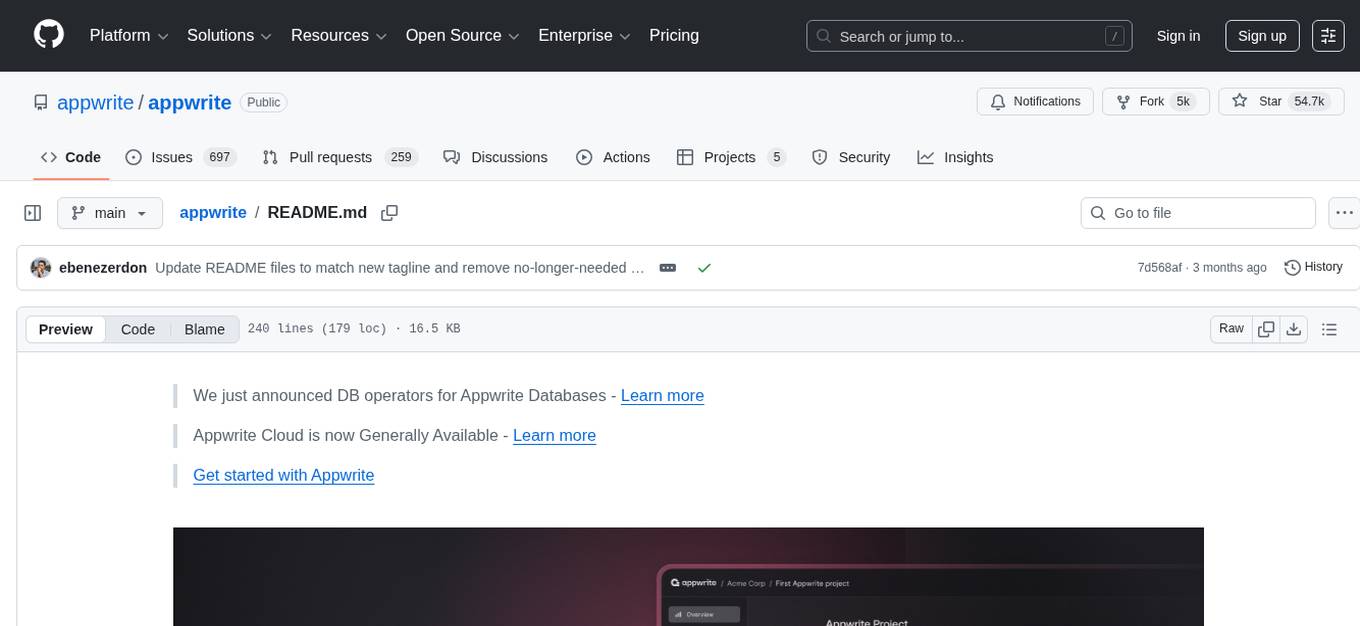
appwrite
Appwrite is a best-in-class, developer-first platform that provides everything needed to create scalable, stable, and production-ready software quickly. It is an end-to-end platform for building Web, Mobile, Native, or Backend apps, packaged as Docker microservices. Appwrite abstracts the complexity of building modern apps and allows users to build secure, full-stack applications faster. It offers features like user authentication, database management, storage, file management, image manipulation, Cloud Functions, messaging, and more services.
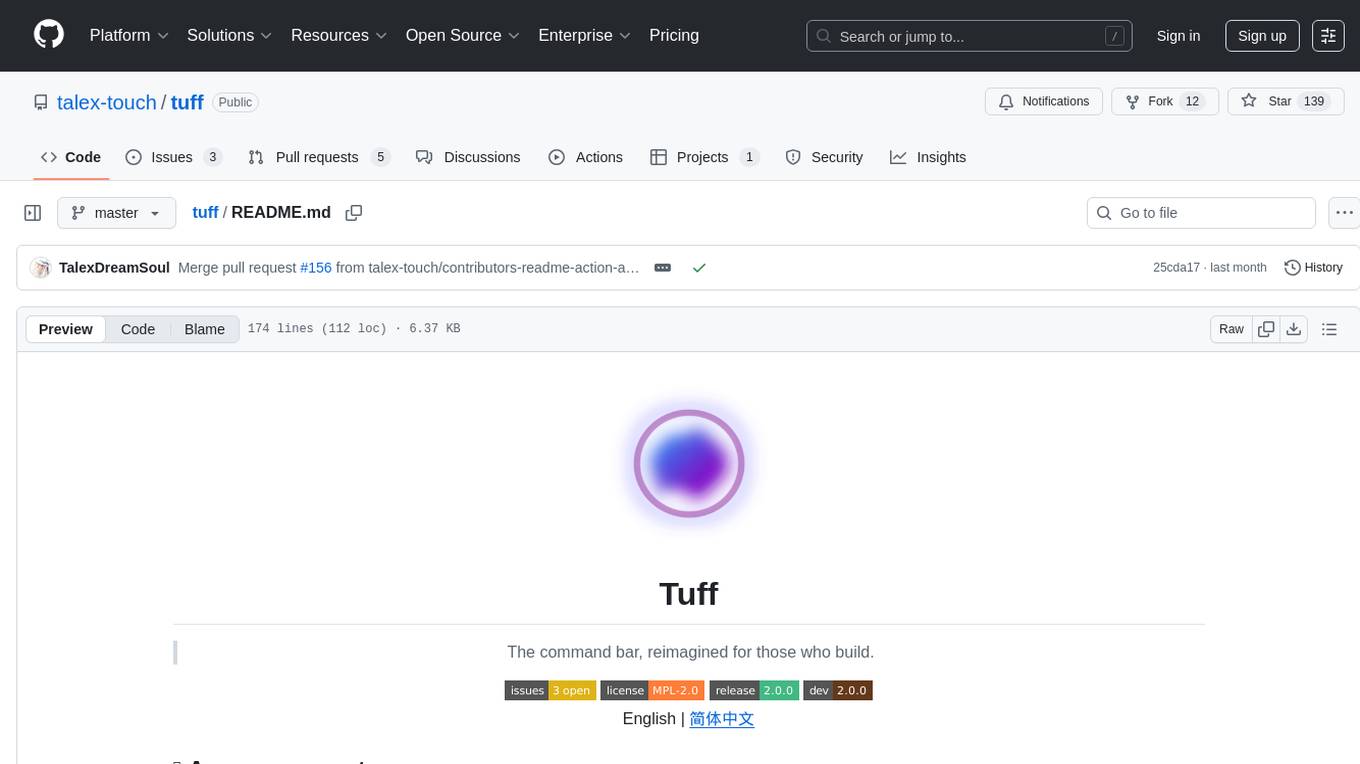
tuff
Tuff is a local-first, AI-native, and infinitely extensible desktop command center designed to enhance workflow efficiency. It offers a seamless integration of core utilities, AI-powered search, contextual intelligence, and extensibility through custom plugins. With a beautiful UI design, rich functionality, simple operations, and a focus on security and reliability, Tuff provides users with a cross-platform desktop software that is easy to use and offers a good user experience.

papersgpt-for-zotero
PapersGPT For Zotero is an AI plugin that enhances papers reading and research efficiency by integrating cutting-edge LLMs and offering seamless Zotero integration. Users can ask questions, extract insights, and converse with PDFs directly, making it a powerful research assistant for scholars, researchers, and anyone dealing with large amounts of text in PDF format. The plugin ensures privacy and data safety by using locally stored models and modules, with the ability to switch between different models easily. It provides a user-friendly interface for managing and chatting documents within Zotero, making research tasks more streamlined and productive.

nexent
Nexent is a powerful tool for analyzing and visualizing network traffic data. It provides comprehensive insights into network behavior, helping users to identify patterns, anomalies, and potential security threats. With its user-friendly interface and advanced features, Nexent is suitable for network administrators, cybersecurity professionals, and anyone looking to gain a deeper understanding of their network infrastructure.
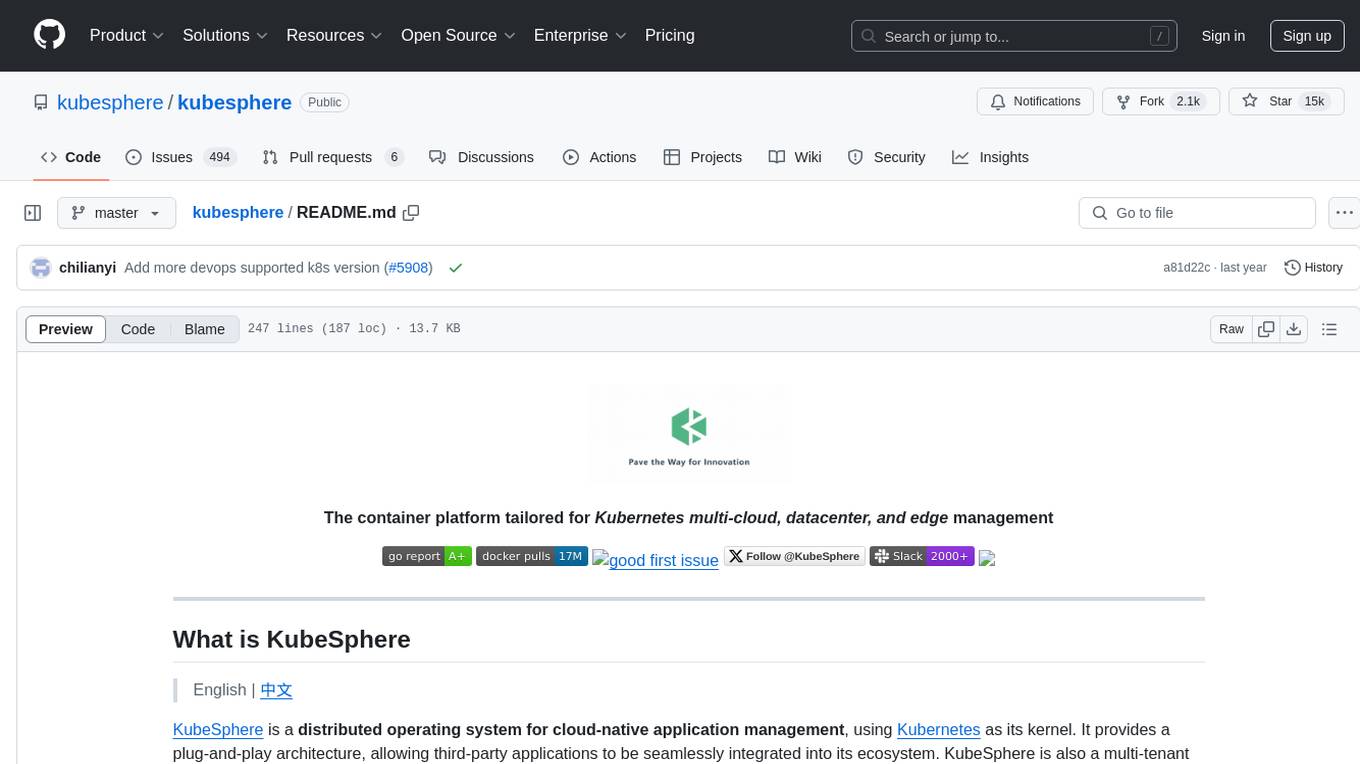
kubesphere
KubeSphere is a distributed operating system for cloud-native application management, using Kubernetes as its kernel. It provides a plug-and-play architecture, allowing third-party applications to be seamlessly integrated into its ecosystem. KubeSphere is also a multi-tenant container platform with full-stack automated IT operation and streamlined DevOps workflows. It provides developer-friendly wizard web UI, helping enterprises to build out a more robust and feature-rich platform, which includes most common functionalities needed for enterprise Kubernetes strategy.
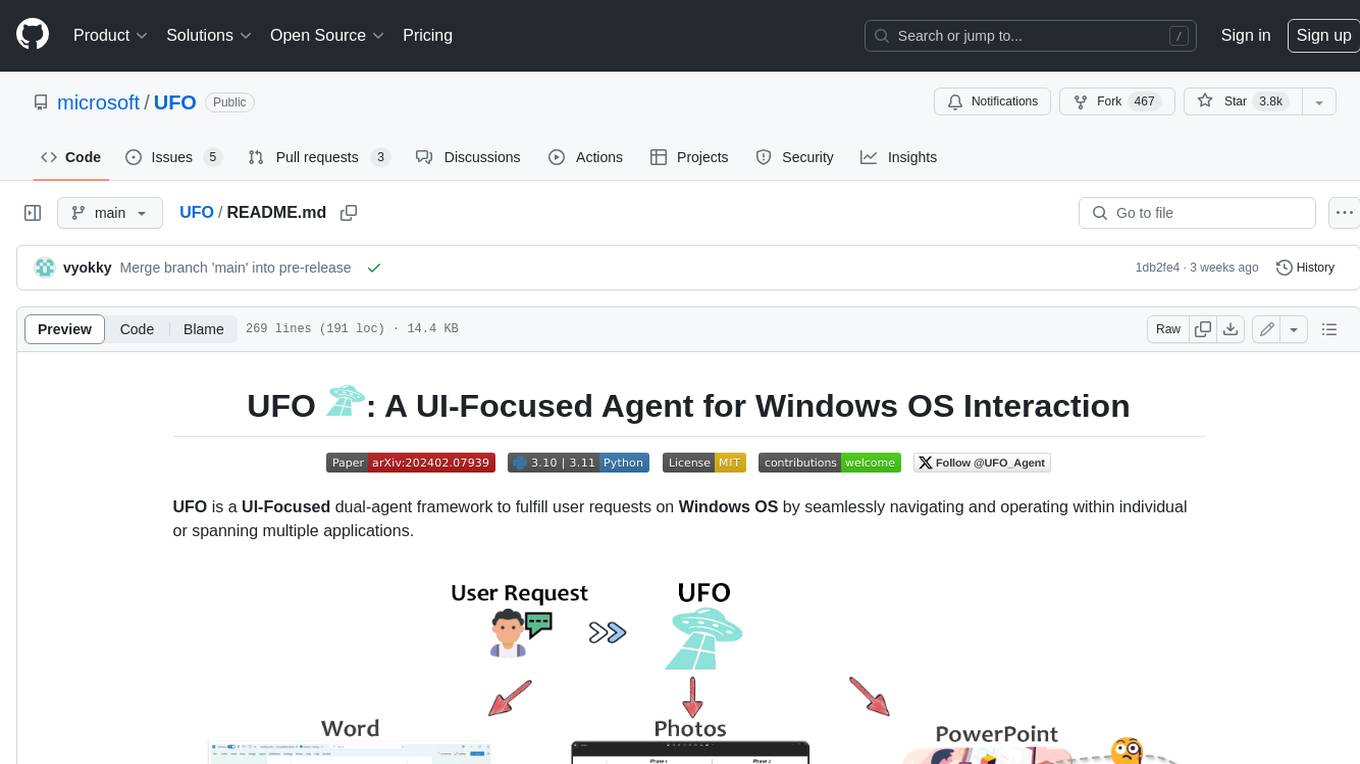
UFO
UFO is a UI-focused dual-agent framework to fulfill user requests on Windows OS by seamlessly navigating and operating within individual or spanning multiple applications.

gptme
Personal AI assistant/agent in your terminal, with tools for using the terminal, running code, editing files, browsing the web, using vision, and more. A great coding agent that is general-purpose to assist in all kinds of knowledge work, from a simple but powerful CLI. An unconstrained local alternative to ChatGPT with 'Code Interpreter', Cursor Agent, etc. Not limited by lack of software, internet access, timeouts, or privacy concerns if using local models.
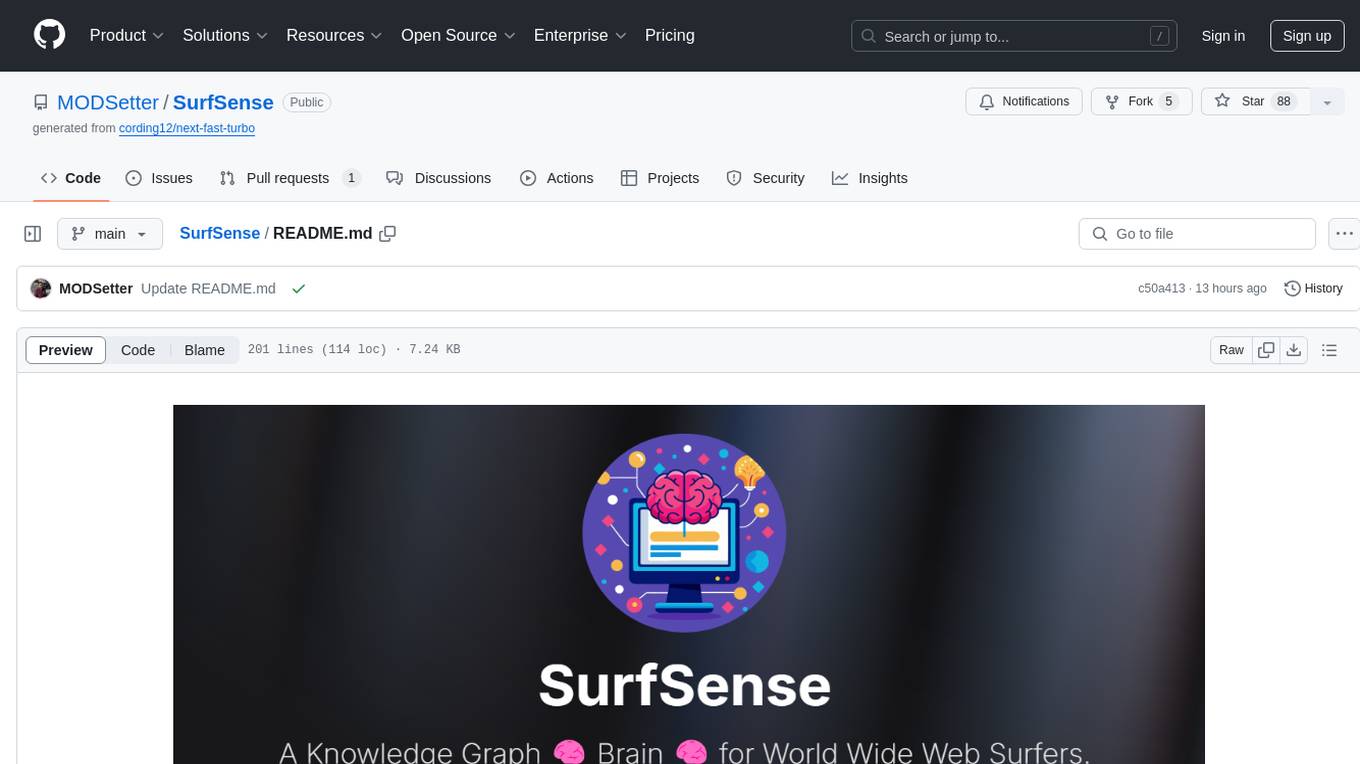
SurfSense
SurfSense is a tool designed to help users save and organize content from the internet into a personal Knowledge Graph. It allows users to capture web browsing sessions and webpage content using a Chrome extension, enabling easy retrieval and recall of saved information. SurfSense offers features like powerful search capabilities, natural language interaction with saved content, self-hosting options, and integration with GraphRAG for meaningful content relations. The tool eliminates the need for web scraping by directly reading data from the DOM, making it a convenient solution for managing online information.
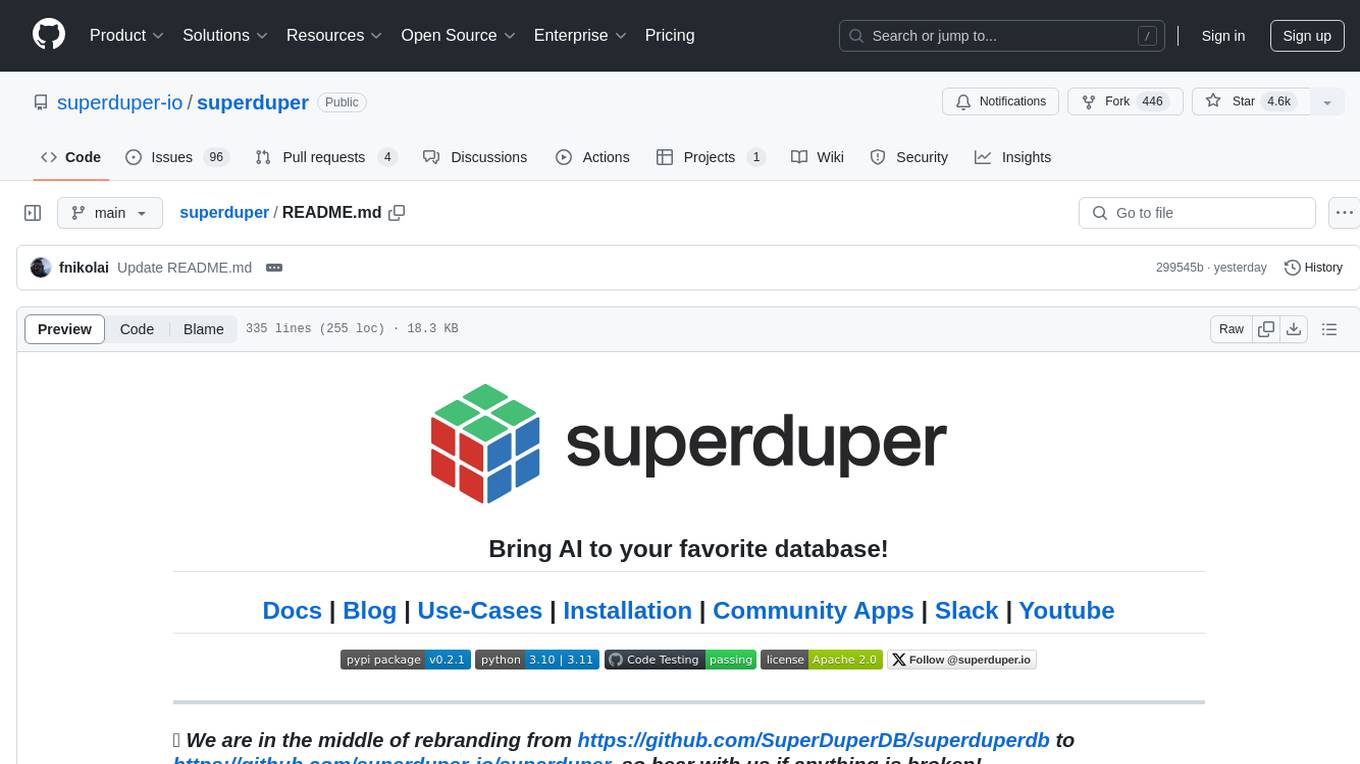
superduper
superduper.io is a Python framework that integrates AI models, APIs, and vector search engines directly with existing databases. It allows hosting of models, streaming inference, and scalable model training/fine-tuning. Key features include integration of AI with data infrastructure, inference via change-data-capture, scalable model training, model chaining, simple Python interface, Python-first approach, working with difficult data types, feature storing, and vector search capabilities. The tool enables users to turn their existing databases into centralized repositories for managing AI model inputs and outputs, as well as conducting vector searches without the need for specialized databases.

gptme
GPTMe is a tool that allows users to interact with an LLM assistant directly in their terminal in a chat-style interface. The tool provides features for the assistant to run shell commands, execute code, read/write files, and more, making it suitable for various development and terminal-based tasks. It serves as a local alternative to ChatGPT's 'Code Interpreter,' offering flexibility and privacy when using a local model. GPTMe supports code execution, file manipulation, context passing, self-correction, and works with various AI models like GPT-4. It also includes a GitHub Bot for requesting changes and operates entirely in GitHub Actions. In progress features include handling long contexts intelligently, a web UI and API for conversations, web and desktop vision, and a tree-based conversation structure.
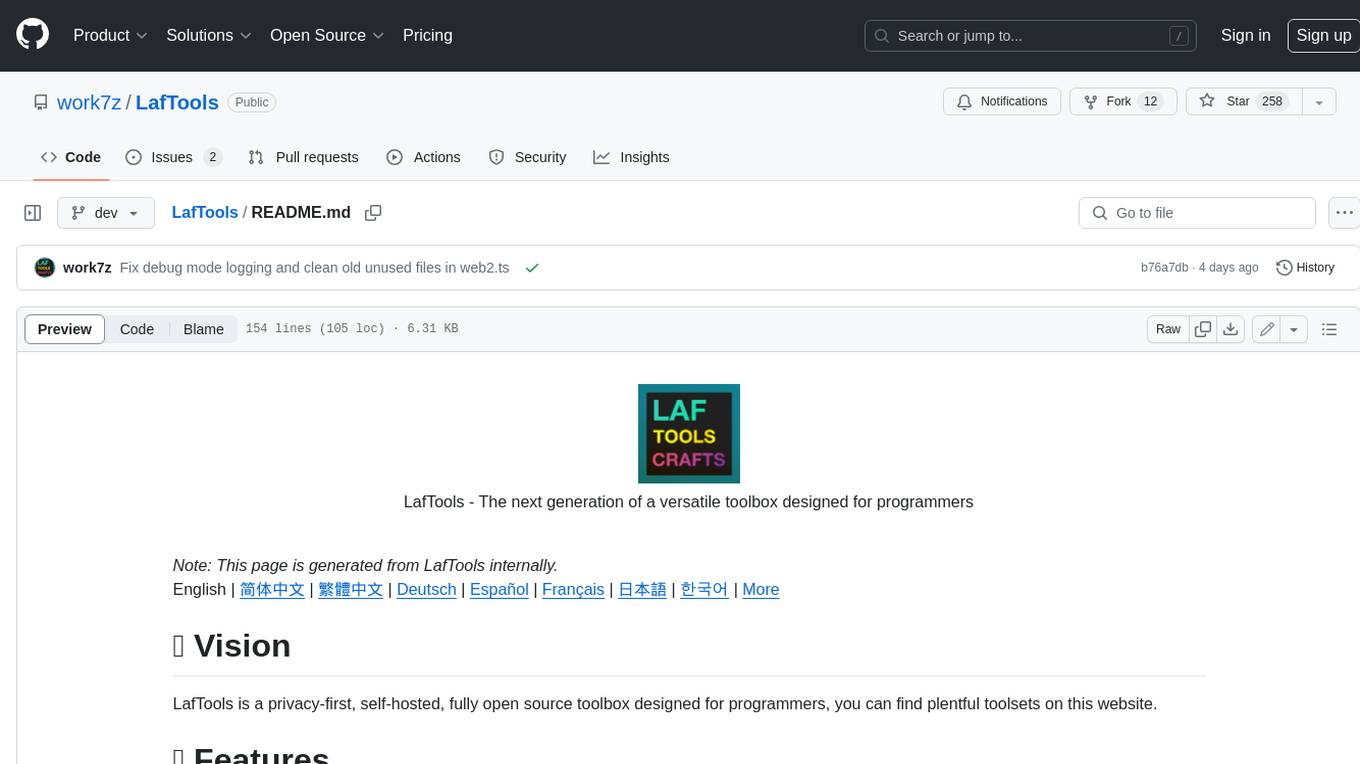
LafTools
LafTools is a privacy-first, self-hosted, fully open source toolbox designed for programmers. It offers a wide range of tools, including code generation, translation, encryption, compression, data analysis, and more. LafTools is highly integrated with a productive UI and supports full GPT-alike functionality. It is available as Docker images and portable edition, with desktop edition support planned for the future.
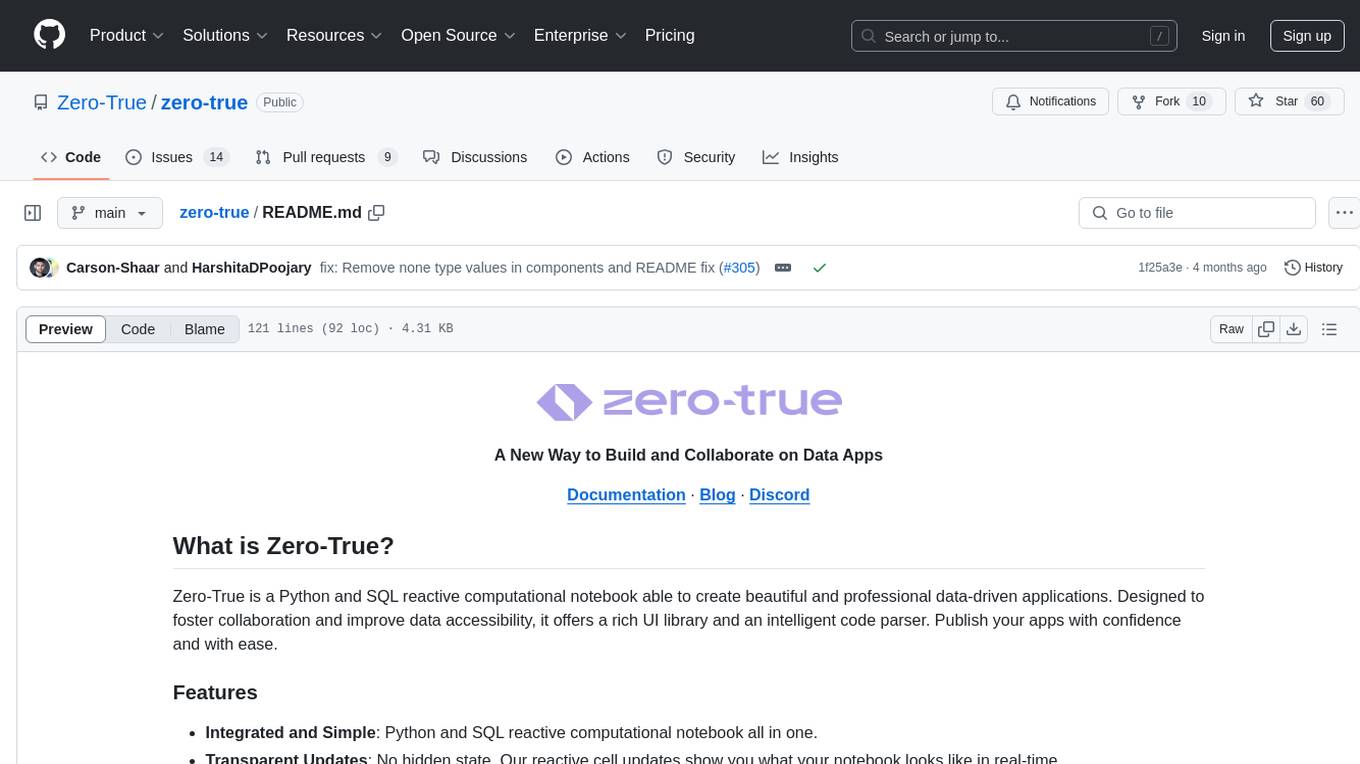
zero-true
Zero-True is a Python and SQL reactive computational notebook designed for building and collaborating on data-driven applications. It offers an integrated and simple environment with transparent updates, dynamic and interactive UI rendering, fast prototyping capabilities, and open-source community contributions. Users can create rich, reactive apps with ease and publish them confidently. Zero-True aims to improve data accessibility and foster collaboration among users.
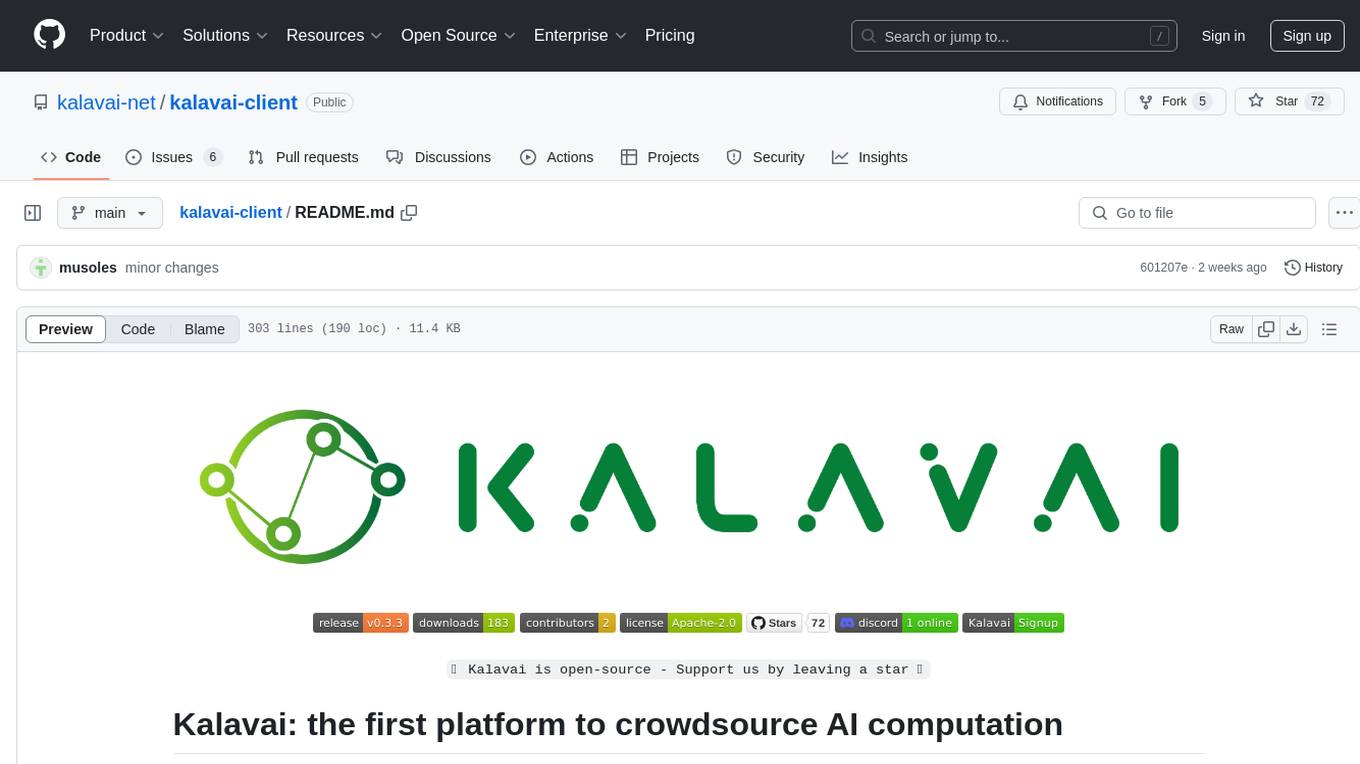
kalavai-client
Kalavai is an open-source platform that transforms everyday devices into an AI supercomputer by aggregating resources from multiple machines. It facilitates matchmaking of resources for large AI projects, making AI hardware accessible and affordable. Users can create local and public pools, connect with the community's resources, and share computing power. The platform aims to be a management layer for research groups and organizations, enabling users to unlock the power of existing hardware without needing a devops team. Kalavai CLI tool helps manage both versions of the platform.
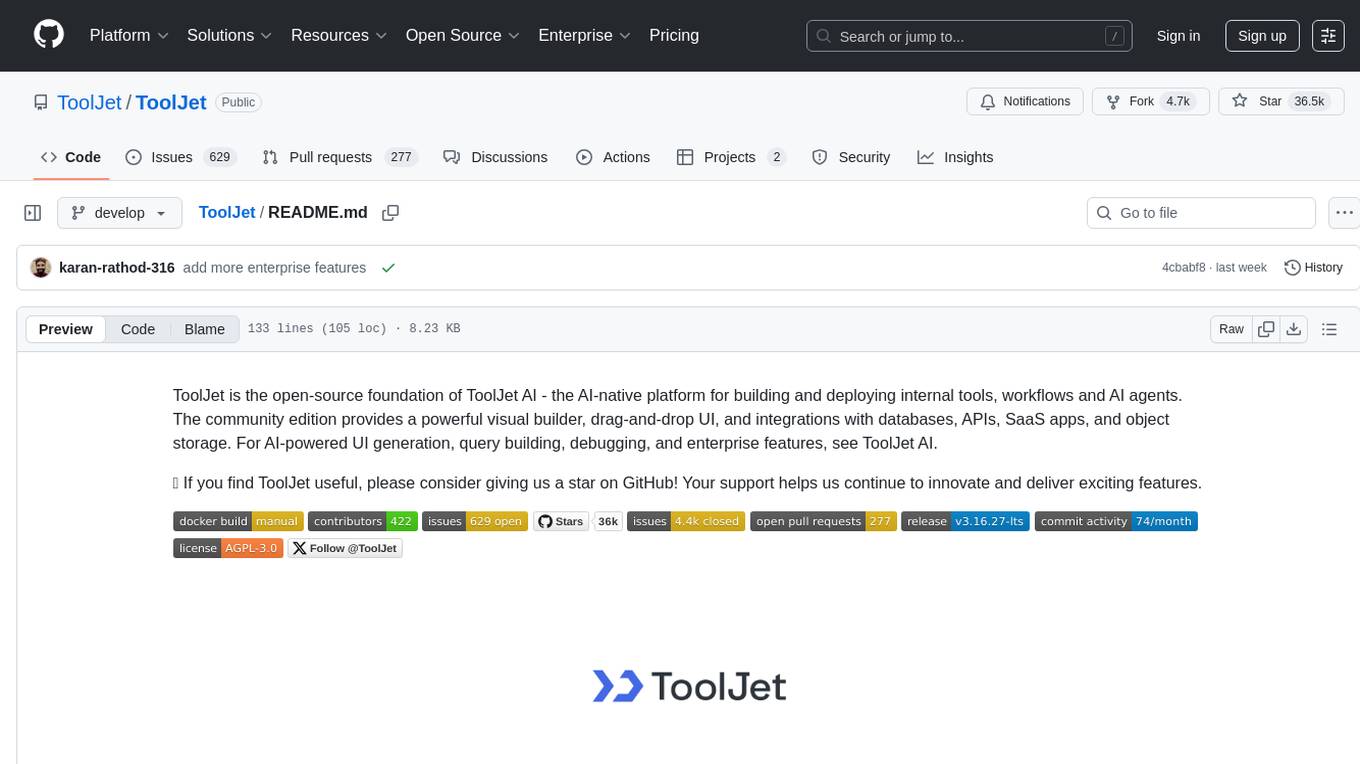
ToolJet
ToolJet is an open-source platform for building and deploying internal tools, workflows, and AI agents. It offers a visual builder with drag-and-drop UI, integrations with databases, APIs, SaaS apps, and object storage. The community edition includes features like a visual app builder, ToolJet database, multi-page apps, collaboration tools, extensibility with plugins, code execution, and security measures. ToolJet AI, the enterprise version, adds AI capabilities for app generation, query building, debugging, agent creation, security compliance, user management, environment management, GitSync, branding, access control, embedded apps, and enterprise support.
For similar tasks

openrecall
OpenRecall is a fully open-source, privacy-first tool that captures your digital history through snapshots, making it searchable for quick access to specific information. It offers transparency, cross-platform support, privacy focus, and hardware compatibility. Features include time travel, local-first AI, semantic search, and full control over storage. The roadmap includes visual search capabilities and audio transcription. Users can easily install and run OpenRecall to enhance memory and productivity without compromising privacy.
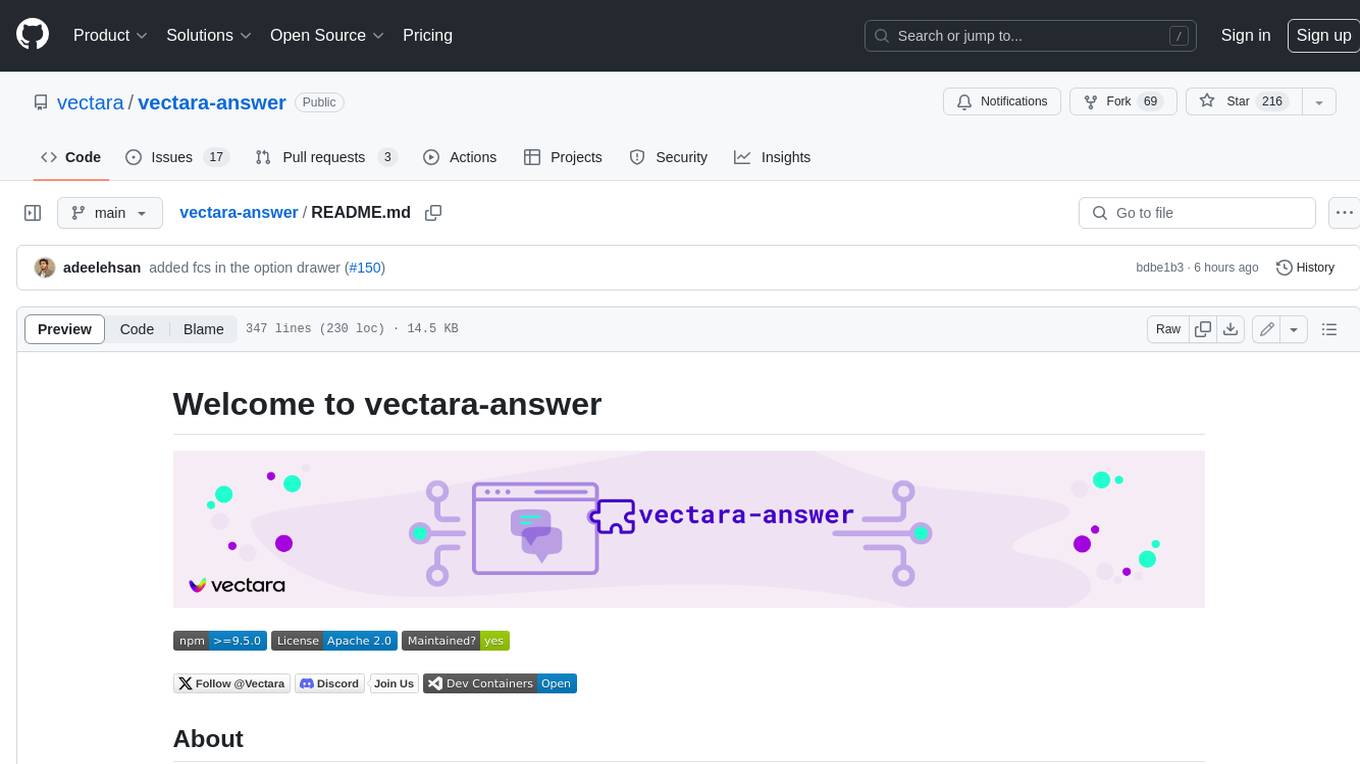
vectara-answer
Vectara Answer is a sample app for Vectara-powered Summarized Semantic Search (or question-answering) with advanced configuration options. For examples of what you can build with Vectara Answer, check out Ask News, LegalAid, or any of the other demo applications.
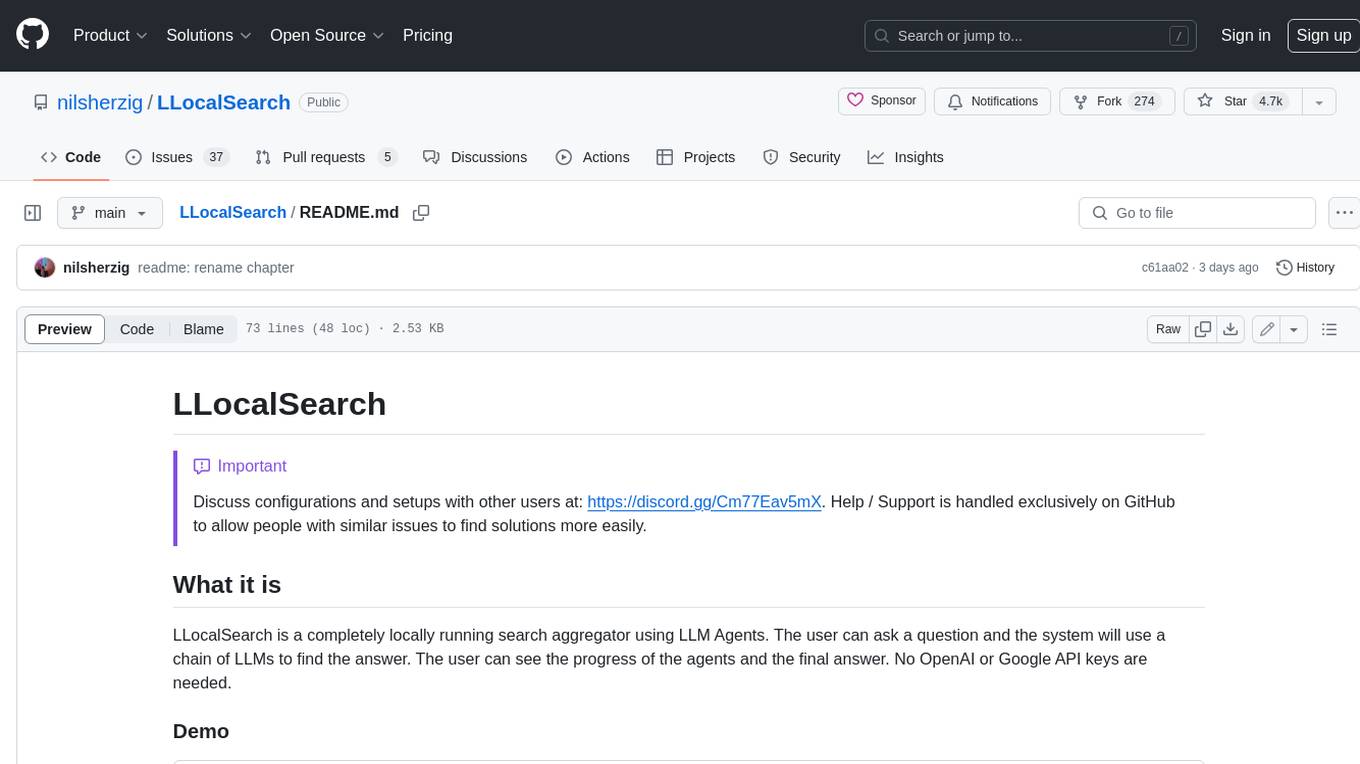
LLocalSearch
LLocalSearch is a completely locally running search aggregator using LLM Agents. The user can ask a question and the system will use a chain of LLMs to find the answer. The user can see the progress of the agents and the final answer. No OpenAI or Google API keys are needed.

llm-answer-engine
This repository contains the code and instructions needed to build a sophisticated answer engine that leverages the capabilities of Groq, Mistral AI's Mixtral, Langchain.JS, Brave Search, Serper API, and OpenAI. Designed to efficiently return sources, answers, images, videos, and follow-up questions based on user queries, this project is an ideal starting point for developers interested in natural language processing and search technologies.
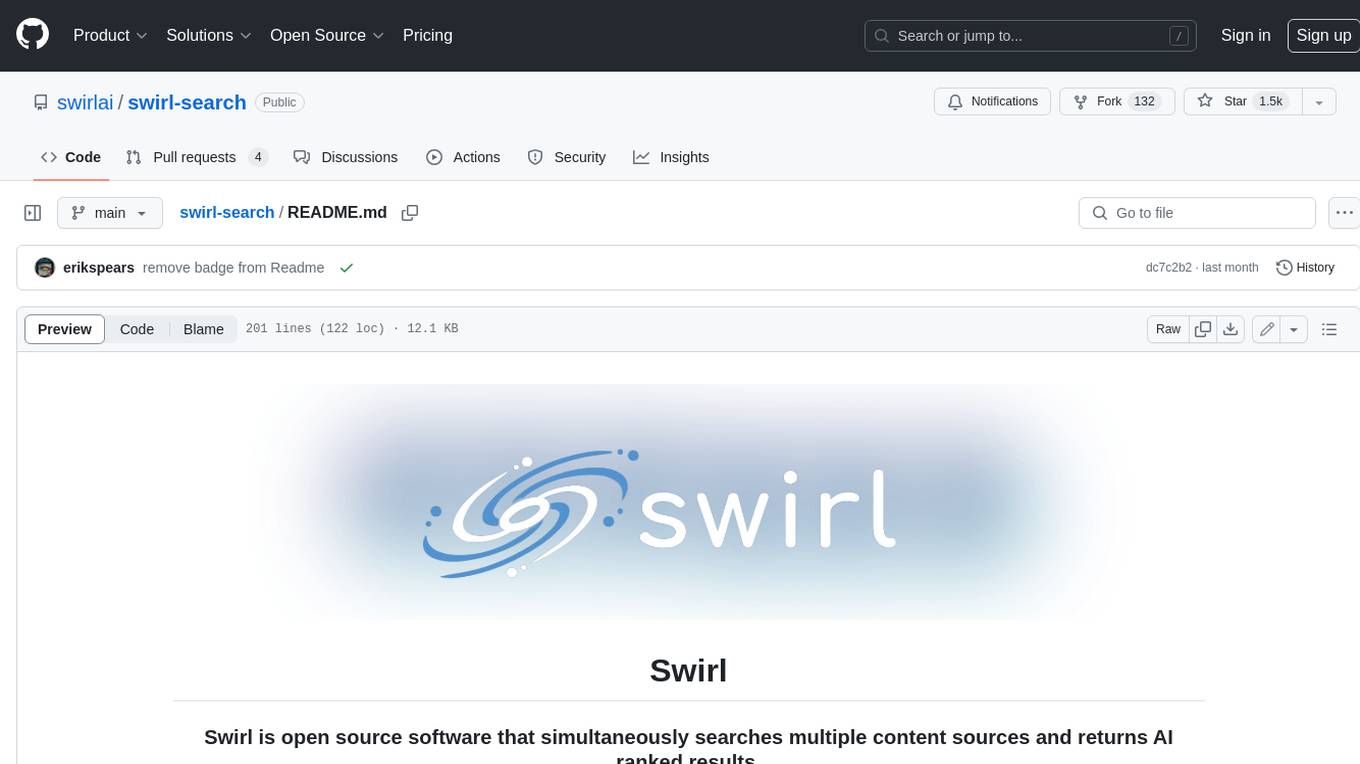
swirl-search
Swirl is an open-source software that allows users to simultaneously search multiple content sources and receive AI-ranked results. It connects to various data sources, including databases, public data services, and enterprise sources, and utilizes AI and LLMs to generate insights and answers based on the user's data. Swirl is easy to use, requiring only the download of a YML file, starting in Docker, and searching with Swirl. Users can add credentials to preloaded SearchProviders to access more sources. Swirl also offers integration with ChatGPT as a configured AI model. It adapts and distributes user queries to anything with a search API, re-ranking the unified results using Large Language Models without extracting or indexing anything. Swirl includes five Google Programmable Search Engines (PSEs) to get users up and running quickly. Key features of Swirl include Microsoft 365 integration, SearchProvider configurations, query adaptation, synchronous or asynchronous search federation, optional subscribe feature, pipelining of Processor stages, results stored in SQLite3 or PostgreSQL, built-in Query Transformation support, matching on word stems and handling of stopwords, duplicate detection, re-ranking of unified results using Cosine Vector Similarity, result mixers, page through all results requested, sample data sets, optional spell correction, optional search/result expiration service, easily extensible Connector and Mixer objects, and a welcoming community for collaboration and support.

DocsGPT
DocsGPT is an open-source documentation assistant powered by GPT models. It simplifies the process of searching for information in project documentation by allowing developers to ask questions and receive accurate answers. With DocsGPT, users can say goodbye to manual searches and quickly find the information they need. The tool aims to revolutionize project documentation experiences and offers features like live previews, Discord community, guides, and contribution opportunities. It consists of a Flask app, Chrome extension, similarity search index creation script, and a frontend built with Vite and React. Users can quickly get started with DocsGPT by following the provided setup instructions and can contribute to its development by following the guidelines in the CONTRIBUTING.md file. The project follows a Code of Conduct to ensure a harassment-free community environment for all participants. DocsGPT is licensed under MIT and is built with LangChain.
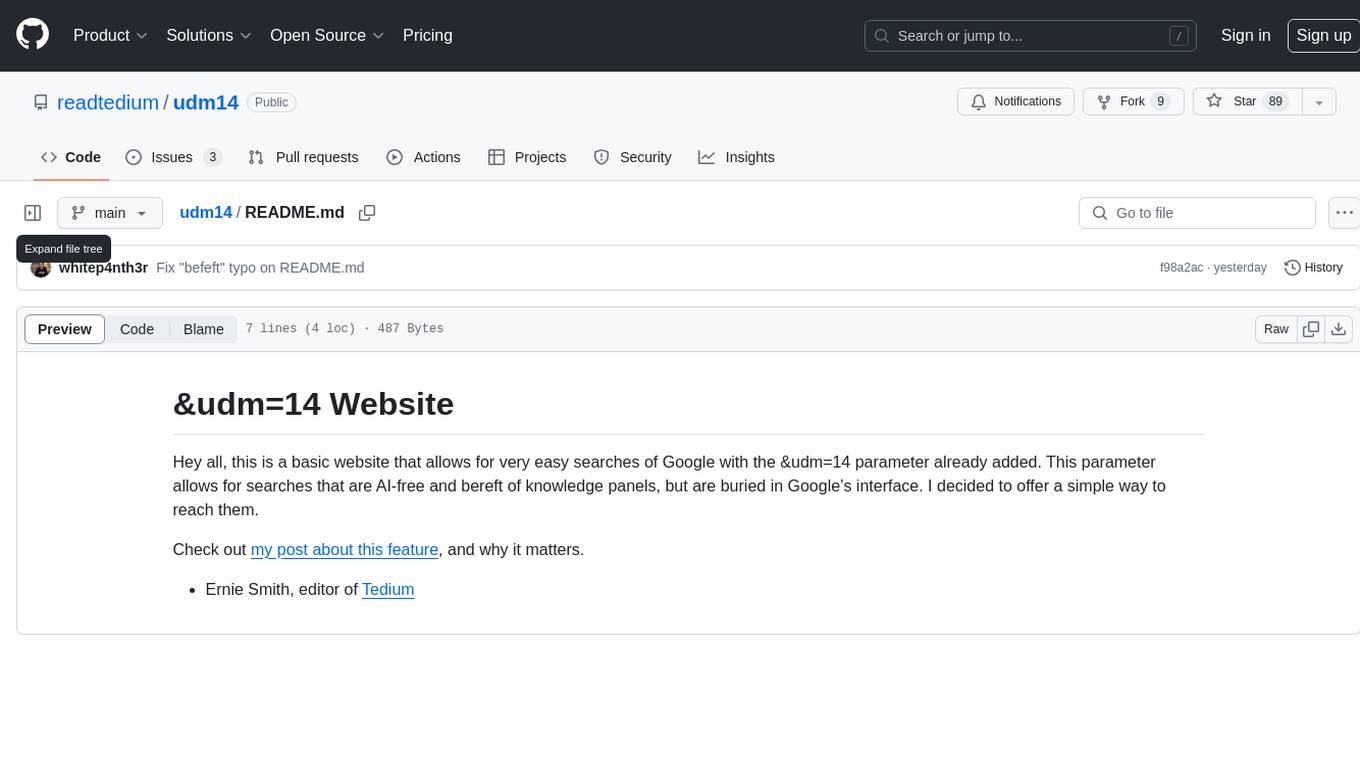
udm14
udm14 is a basic website designed to facilitate easy searches on Google with the &udm=14 parameter, ensuring AI-free results without knowledge panels. The tool simplifies access to these specific search results buried within Google's interface, providing a straightforward solution for users seeking this functionality.
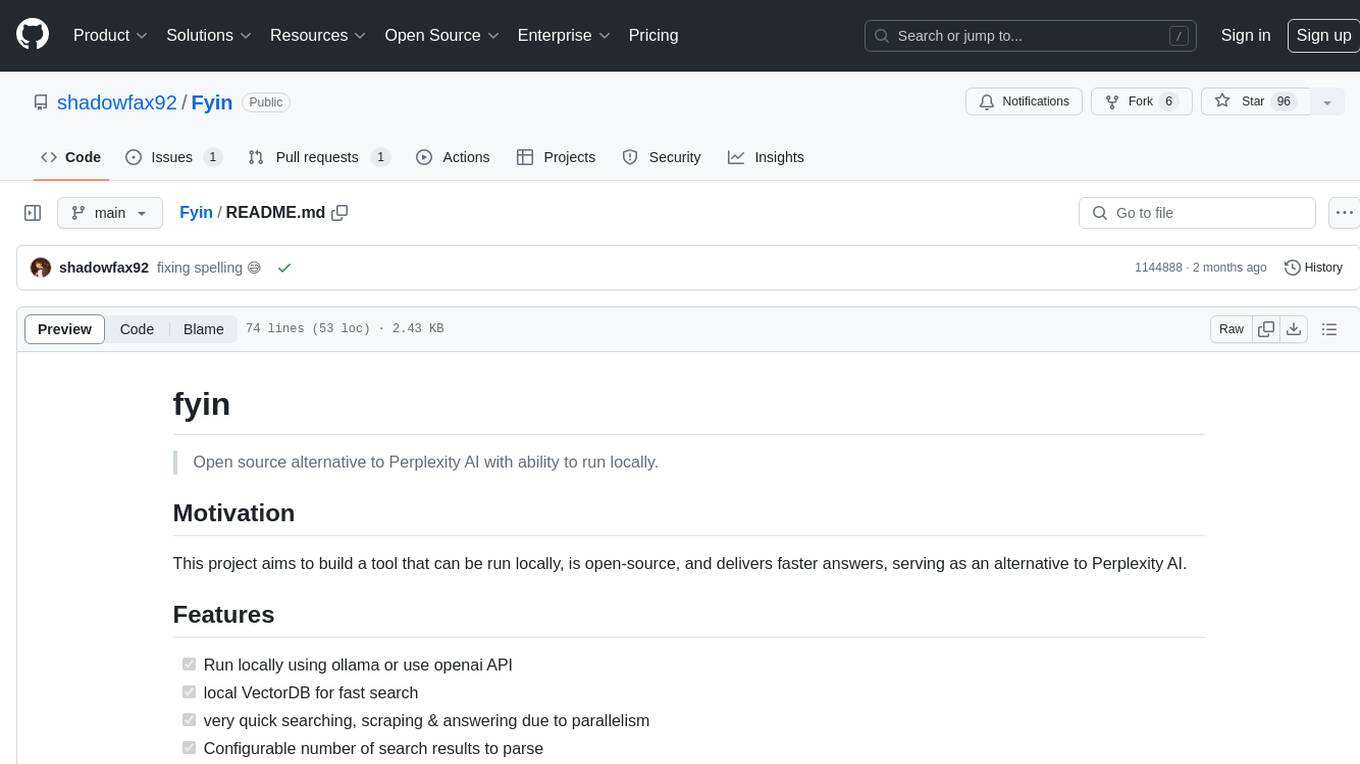
Fyin
Fyin is an open-source tool that serves as an alternative to Perplexity AI, allowing users to run it locally for faster answers. It features the ability to run locally using ollama or OpenAI API, a local VectorDB for fast search, quick searching, scraping & answering due to parallelism, configurable number of search results to parse, and local scraping of websites. The tool aims to provide a more efficient and customizable solution for obtaining answers through search and scraping functionalities.
For similar jobs

lollms-webui
LoLLMs WebUI (Lord of Large Language Multimodal Systems: One tool to rule them all) is a user-friendly interface to access and utilize various LLM (Large Language Models) and other AI models for a wide range of tasks. With over 500 AI expert conditionings across diverse domains and more than 2500 fine tuned models over multiple domains, LoLLMs WebUI provides an immediate resource for any problem, from car repair to coding assistance, legal matters, medical diagnosis, entertainment, and more. The easy-to-use UI with light and dark mode options, integration with GitHub repository, support for different personalities, and features like thumb up/down rating, copy, edit, and remove messages, local database storage, search, export, and delete multiple discussions, make LoLLMs WebUI a powerful and versatile tool.

Azure-Analytics-and-AI-Engagement
The Azure-Analytics-and-AI-Engagement repository provides packaged Industry Scenario DREAM Demos with ARM templates (Containing a demo web application, Power BI reports, Synapse resources, AML Notebooks etc.) that can be deployed in a customer’s subscription using the CAPE tool within a matter of few hours. Partners can also deploy DREAM Demos in their own subscriptions using DPoC.

minio
MinIO is a High Performance Object Storage released under GNU Affero General Public License v3.0. It is API compatible with Amazon S3 cloud storage service. Use MinIO to build high performance infrastructure for machine learning, analytics and application data workloads.

mage-ai
Mage is an open-source data pipeline tool for transforming and integrating data. It offers an easy developer experience, engineering best practices built-in, and data as a first-class citizen. Mage makes it easy to build, preview, and launch data pipelines, and provides observability and scaling capabilities. It supports data integrations, streaming pipelines, and dbt integration.

AiTreasureBox
AiTreasureBox is a versatile AI tool that provides a collection of pre-trained models and algorithms for various machine learning tasks. It simplifies the process of implementing AI solutions by offering ready-to-use components that can be easily integrated into projects. With AiTreasureBox, users can quickly prototype and deploy AI applications without the need for extensive knowledge in machine learning or deep learning. The tool covers a wide range of tasks such as image classification, text generation, sentiment analysis, object detection, and more. It is designed to be user-friendly and accessible to both beginners and experienced developers, making AI development more efficient and accessible to a wider audience.

tidb
TiDB is an open-source distributed SQL database that supports Hybrid Transactional and Analytical Processing (HTAP) workloads. It is MySQL compatible and features horizontal scalability, strong consistency, and high availability.

airbyte
Airbyte is an open-source data integration platform that makes it easy to move data from any source to any destination. With Airbyte, you can build and manage data pipelines without writing any code. Airbyte provides a library of pre-built connectors that make it easy to connect to popular data sources and destinations. You can also create your own connectors using Airbyte's no-code Connector Builder or low-code CDK. Airbyte is used by data engineers and analysts at companies of all sizes to build and manage their data pipelines.

labelbox-python
Labelbox is a data-centric AI platform for enterprises to develop, optimize, and use AI to solve problems and power new products and services. Enterprises use Labelbox to curate data, generate high-quality human feedback data for computer vision and LLMs, evaluate model performance, and automate tasks by combining AI and human-centric workflows. The academic & research community uses Labelbox for cutting-edge AI research.

